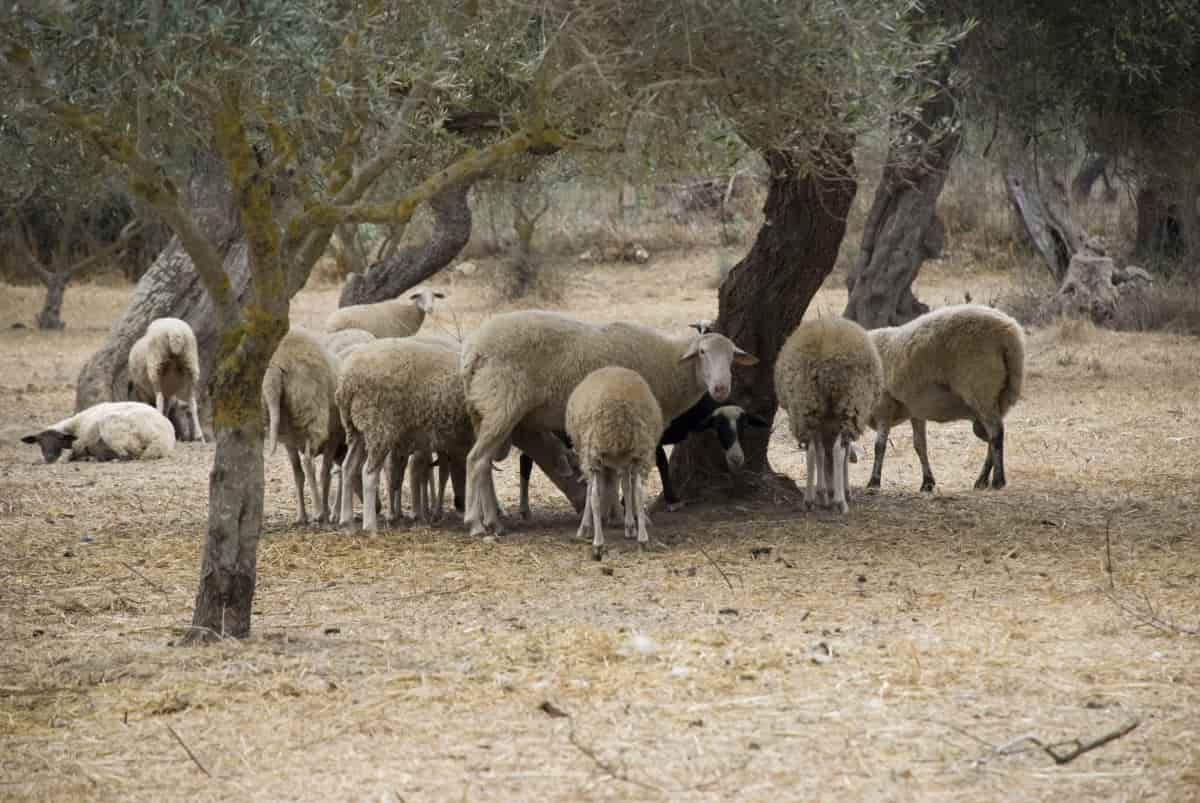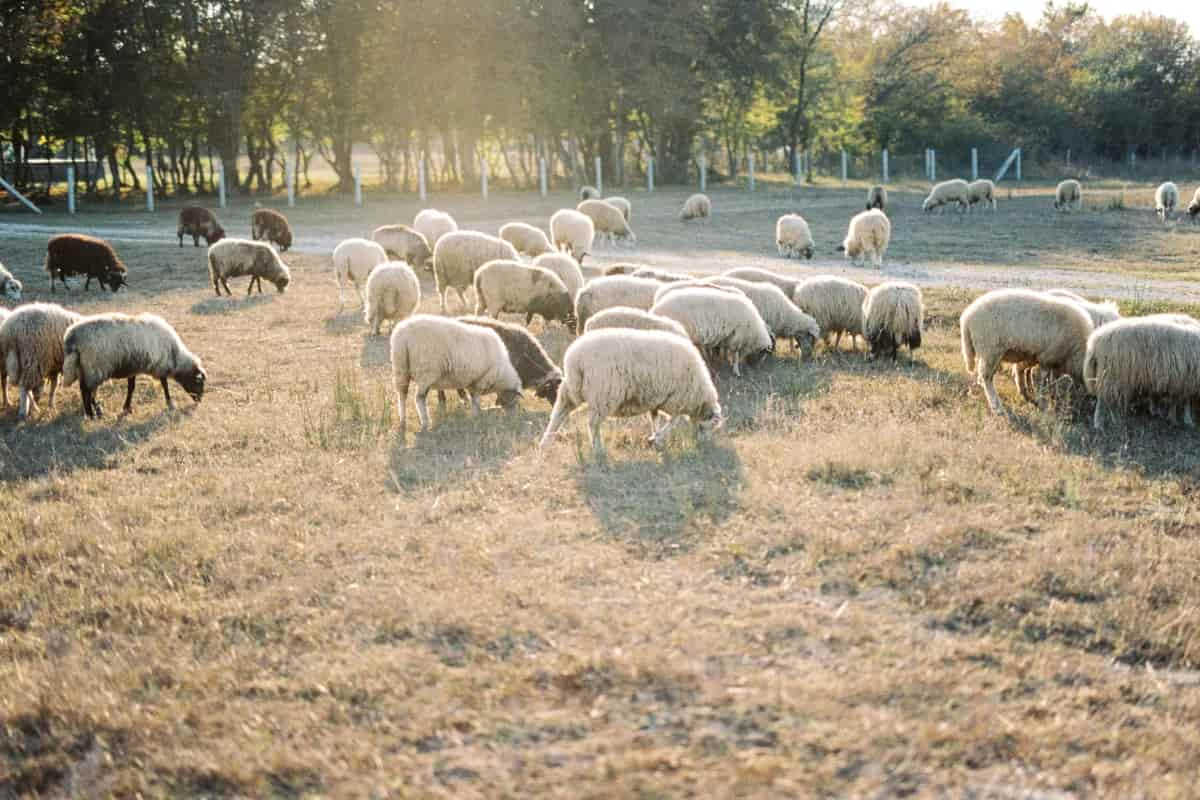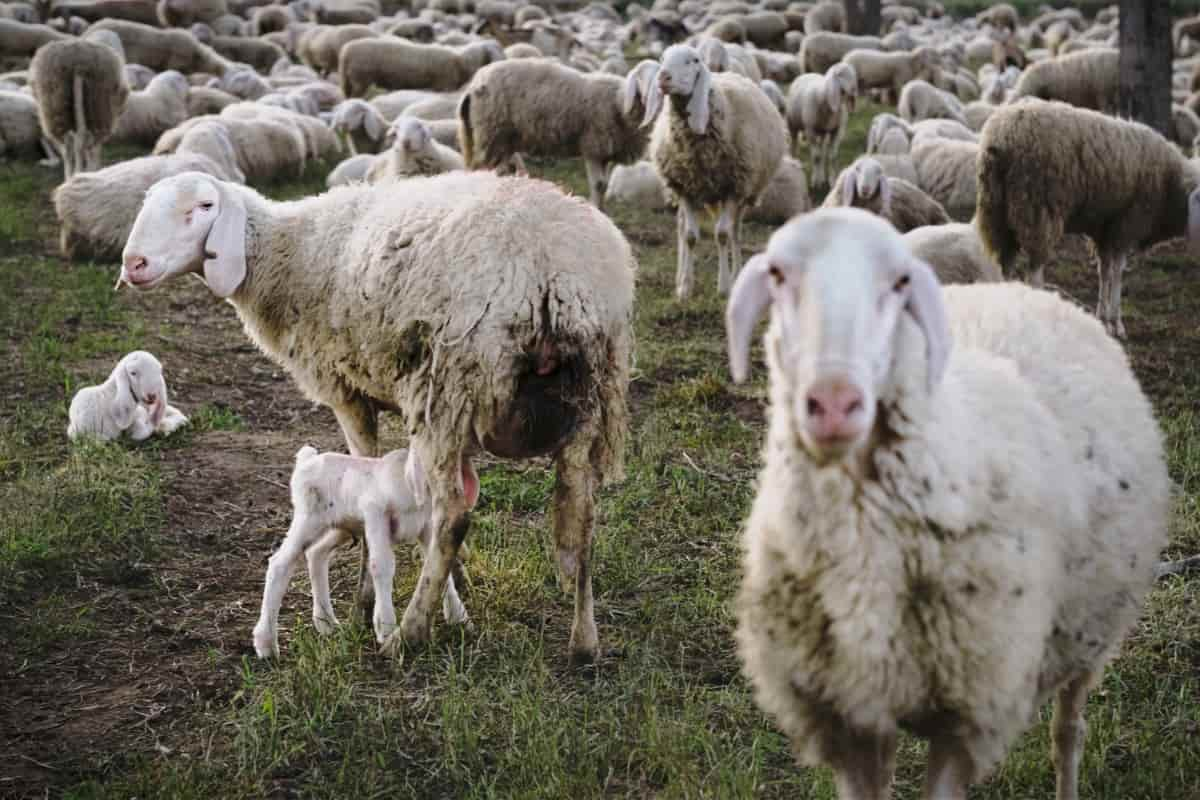Laticauda Sheep, known for their significant contributions to wool production and meat quality, is a cornerstone of sustainable farming. Adaptable to various climates and environments, these sheep require specific care, including a tailored diet and habitat, to ensure their health and productivity. This comprehensive guide covers every aspect of Laticauda Sheep, from their origins and characteristics to their care and diet. It provides essential information for anyone looking to start a Laticauda Sheep farm.

Laticauda Sheep
Origin and History: Derived from ancient farming methods, Laticauda Sheep have undergone centuries of selective breeding aimed at improving both their wool and meat characteristics. Their resilience and adaptability have made them valuable in sustainable agriculture, contributing to their spread across various regions and climates.
Physical Description: Characterised by their robust build and diverse coat colours, Laticauda Sheep are aesthetically appealing and highly adaptable, making them suitable for various farming conditions. Their physical attributes contribute significantly to their utility in wool production.
Laticauda Sheep Price: The price of Laticauda Sheep varies widely, often ranging from $200 to $500 for common stock, with breeding and show-quality animals potentially fetching higher prices. These costs reflect the breed’s quality and wool and meat production potential.
Laticauda Sheep Lifespan: Laticauda Sheep typically enjoy a lifespan of around 10 to 12 years, which can be extended with proper care and management, making them a long-term investment for farmers and breeders focused on sustainable practices.
Characteristics of Laticauda Sheep
Size and Weight: Adult Laticauda Sheep generally weigh between 80 and 120 kg (176-264 lbs), standing at a shoulder height of approximately 70-90 cm (27-35 inches). These dimensions underscore their strong physical presence and capacity for significant wool and meat yield.
Coat and Color Variations: The wool of Laticauda Sheep is highly valued for its variety in texture and color, ranging from white to shades of grey and black, enhancing the versatility and marketability of their wool products.
Behaviour and Temperament
Known for their docile and friendly temperament, Laticauda Sheep are easy to manage, making them ideal for diverse farming setups. Their social structure promotes flock harmony, which is essential for effective farm management.
- Social Structure: The well-defined social hierarchy within Laticauda Sheep flocks facilitates smooth breeding and grazing practices, contributing to the overall health and stability of the group.
- Interaction with Humans: The gentle nature of Laticauda Sheep allows for easy handling and interaction, simplifying tasks such as shearing, feeding, and healthcare and making them a favoured choice among farmers.
Habitat and Living Conditions
- Preferred Climate: Moderate climates with balanced seasons are ideal for Laticauda Sheep, allowing them access to year-round grazing and comfortable living conditions.
- Housing Requirements: Adequate housing for Laticauda Sheep includes spacious, well-ventilated shelters that offer protection from adverse weather, ensuring their health and comfort.
In case you missed it: Ouessant Sheep Breed: Origin, Characteristics, Uses, Weight, Size, Lifespan, and Price

Diet and Nutrition
- Feeding Practices: Effective feeding practices for Laticauda sheep involve providing them with a well-rounded diet containing crucial nutrients like protein, vitamins, and minerals essential for their growth and wool production.
- Nutrition Needs: Laticauda Sheep require a balanced diet of proteins, vitamins, and minerals to support their growth, wool production, and overall health. Adequate forage, supplemented with grains and minerals, especially during critical periods like breeding, lambing, and lactation, is essential for their well-being.
Health and Care
Regular monitoring for health issues and implementing preventative care measures are vital to maintaining the health and productivity of Laticauda Sheep, ensuring their longevity and contribution to sustainable farming practices.
- Common Health Issues: Laticauda Sheep are susceptible to typical ovine health challenges, such as parasitic infections and foot rot. Prompt identification and treatment are crucial to managing these conditions effectively.
- Preventative Care Measures: Routine health checks, vaccinations, and effective parasite control are fundamental preventative care measures for Laticauda Sheep, crucial for safeguarding their health and ensuring the flock’s success.
Breeding and Reproduction
Breeding Age and Season: Laticauda Sheep are generally ready for breeding when they reach physical maturity, which is around 12 to 18 months for ewes, ensuring they can safely carry and nurture their lambs. The breeding season is strategically planned to coincide with the best possible conditions for lambing, typically in the cooler months of autumn, to take advantage of the spring’s abundant pasture for the nursing ewes and growing lambs.
In case you missed it: Perendale Sheep Facts: Ultimate Guide to Breeding, Raising, and Care

Care of Ewes and Lambs: Special attention is given to ewes during pregnancy and after lambing to ensure their health and lambs’ health. This includes providing a nutritious diet, safe and comfortable lambing environments, and monitoring signs of distress or health issues. Post-lambing, ewes, and their lambs require close observation to ensure strong bonding and adequate milk intake by the lambs, which is critical for their survival and growth.
Uses of Laticauda Sheep
Laticauda Sheep are valued for their versatile uses, primarily in wool and meat production. Their wool is known for its quality and is a sought-after material for textiles, while their meat is prized for its flavor and texture. Beyond these primary uses, Laticauda Sheep contribute to sustainable farming practices, such as grazing management and organic fertilization.
Wool Production: The wool of Laticauda Sheep is a key product celebrated for its texture, durability, and natural colors. Regular shearing, typically once or twice a year, is essential to maintain the sheep’s health and the wool’s quality. This wool has various textile applications, including clothing, blankets, and artisan crafts.
Meat Production: Laticauda Sheep meat is another significant product known for its lean, flavorful profile. Meat production involves careful breed selection, nutritional management, and humane processing practices to ensure high-quality meat meets market demands.
Other Uses: In addition to wool and meat, Laticauda Sheep serves various roles on the farm, such as landscape management through grazing, which helps control weeds and maintain healthy pastures. Their manure is also a valuable organic fertilizer, contributing to soil health and crop production.
Raising Laticauda Sheep
Raising Laticauda Sheep requires a commitment to their well-being and productivity, starting with establishing a healthy, genetically diverse flock. This involves selecting robust breeding stock, providing daily care, and managing the flock to ensure optimal health and productivity.
Starting a Flock: Beginning a Laticauda Sheep flock entails careful planning, including selecting quality breeding stock, preparing suitable housing and pasture, and understanding the sheep’s nutritional and health care needs. New farmers often start with a few ewes and a ram or opt for artificial insemination to control genetics and disease transmission.
Daily Management Practices: Effective daily management of a Laticauda Sheep flock includes regular feeding, ensuring clean water is always available, monitoring health, maintaining clean and safe housing, and managing pasture rotation to prevent overgrazing and ensure sustainable land use. Regular health checks, vaccinations, and parasite control prevent diseases and maintain flock health.
In case you missed it: Latxa Sheep Breed: History, Characteristics, Price, Size, Breeding, and Raising

Conclusion
Raising Laticauda Sheep offers farmers a sustainable and rewarding pathway, providing valuable products like wool and meat while contributing to agricultural biodiversity. With proper care, management, and breeding practices, Laticauda Sheep can thrive, supporting farmers’ livelihoods and our ecosystems’ health.
Note: The images presented in this post are intended solely for representation purposes. The images are meant to serve as visual aids and should not be relied upon as accurate representations of their real-life counterparts.
- Feed Your Flock for Less: Top 10 Tips to Save on Chicken Feed
- Ultimate Guide to Ossabaw Island Hog: Breeding, Raising, Diet, and Care
- Hatching Answers: The Top 10 Reasons Your Chickens Aren’t Laying Eggs
- Eggs and Economics: Breaking Down the Cost of Raising Backyard Chickens
- Defend Your Greens: Proven Methods to Keep Iguanas Out of Your Garden
- Ultimate Guide to Cinnamon Queen Chicken: A Comprehensive Guide for Beginners
- Ultimate Guide to California Tan Chicken: Breeding, Raising, Diet, Egg-Production and Care
- Ultimate Guide to Marsh Daisy Chicken: Breeding, Raising, Diet, and Care
- 10 Types of Chicken Farming Businesses You Can Start for Profits